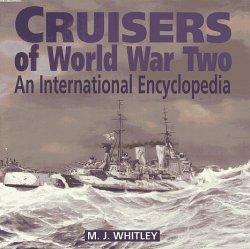The British practice of forcing sailors on U. S. ships to enter the British navy was a major grievance between the United States and Great Britain and served as one of the causes of the War of 1812 (1812-15). Throughout the 18th century and into the 19th century, the British navy used this form of recruitment in British ports and on the high seas. During the colonial period, the British navy occasionally resorted to impressment in North American seaports or the nearby coast. Colonial American sailors greatly resented the press gang—the naval patrol that searched the waterfront for seamen—and several times rioted to prevent impressment. It should be pointed out that there were also anti-press gang riots in Great Britain as well. During the Revolutionary War (1775-83) men captured from merchant vessels were often forced to serve in the British navy, and even sailors from privateers (see also privateering) and warships, instead of being imprisoned, sometimes were recruited into His Majesty’s service. After independence the press gang could no longer haunt the waterfront in the United States, and since the demand for seamen in the British navy declined, impressment on the high seas or even in British ports was not an issue until Great Britain went to war with France in 1793.
In the war against the French, the British relied heavily upon their navy. The number of seamen in the navy rose from 36,000 in 1792 to approximately 120,000 men by 1805. At that point, the British needed to recruit an additional 10,000 men a year just to keep their ships manned. This manpower requirement created a crisis for the British. They took as many men from the British merchant marine as they could without impairing the flow of goods and services. The British, therefore, offered incentives to foreign nationals to join the navy, and men from almost every nation could be found on British warships. Many U. S. citizens, unable or unwilling to find a berth aboard a private vessel, joined the British navy. But the navy still needed men.
From the British perspective, the expanding merchant marine in the United States was an appropriate place to find seamen. As the merchant fleet grew, so did its need for men. By 1807 more than 65,000 men worked on U. S. ships. While the sons of New England and elsewhere in the nation provided much of this workforce, seamen flocked to the U. S. merchant marine from other countries in search of high wages. Captains of vessels in the United States often paid $12-$14 a month for an able-bodied seamen who would make half of that in the British navy. Many men born in Great Britain signed aboard U. S. vessels, and some of them were deserters from the British navy.
Recognizing that the king’s subjects were on ships flying the U. S. flag, officers in the British navy believed they had a right to search those vessels, even on the high seas. To help distinguish between citizens and foreigners onboard merchant ships, the United States offered an official document, called a protection, that indicated that a sailor had been born in the United States. But protections quickly became an easily forged commodity, and for a few dollars, any foreign seaman could purchase a protection that looked authentic. To make matters more complicated, the British did not recognize the process of a British subject becoming a naturalized citizen of the United States. The result was that the British navy searched countless U. S. merchant ships, taking the men it needed. In this process from 1793 to 1812, at least 10,000 sailors were swept onto the gun-decks of British warships, along with thousands of men born in Britain and other countries. As one British officer told several American sailors in the West Indies, “men I will not look at your protections—my ship is in distress, and I will have men to carry me to England.”
Diplomats from the United States decried the practice to little avail, reflecting the lack of respect the young nation suffered on the international scene. At the end of the War of 1812, the Treaty of Ghent (1814) made no mention of impressment, but since the French had been defeated, the demand for seamen in the British navy declined and the issue became moot.
See also Chesapeake-Legfard affair; foreign affairs.
Further reading: Paul A. Gilje, Liberty on the Waterfront: American Maritime Culture in the Age of Revolution (Philadelphia: University of Pennsylvania Press, 2004); Bradford Perkins, Prologue to War, 1805-1812: England and the United States (Berkeley: University of California Press, 1968); James Fulton Zimmerman, Impressment of American Seamen (Port Washington, N. Y.: Kennikat Press, 1966).




 World History
World History









